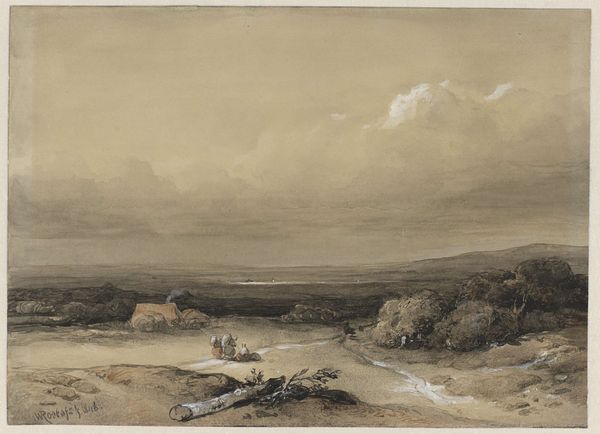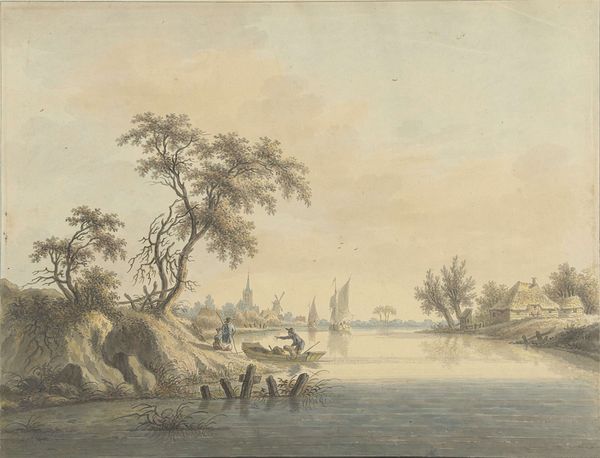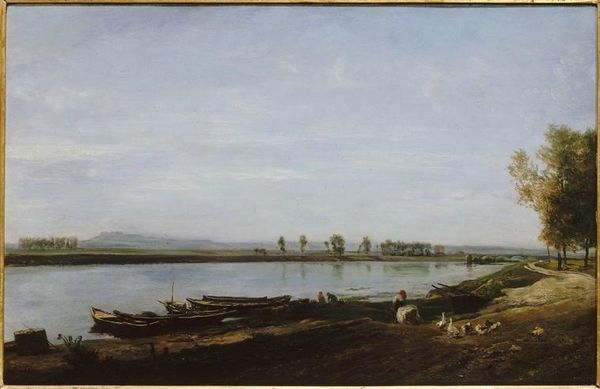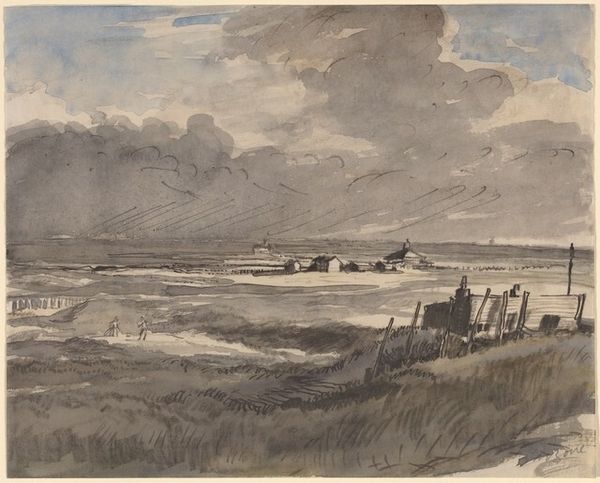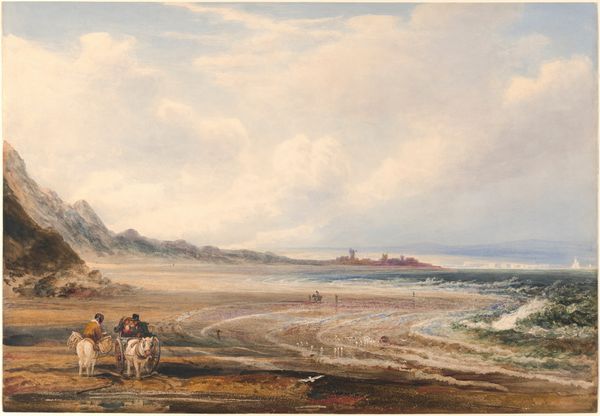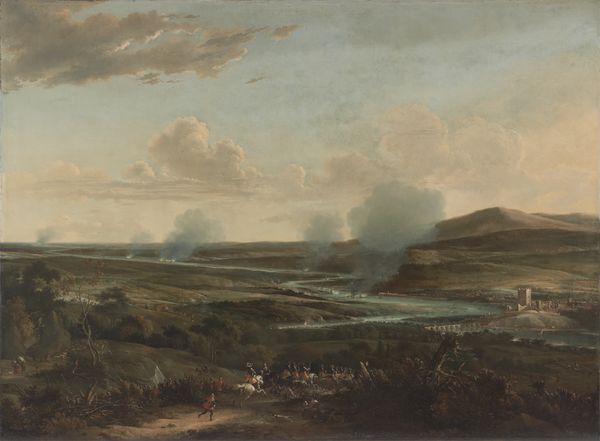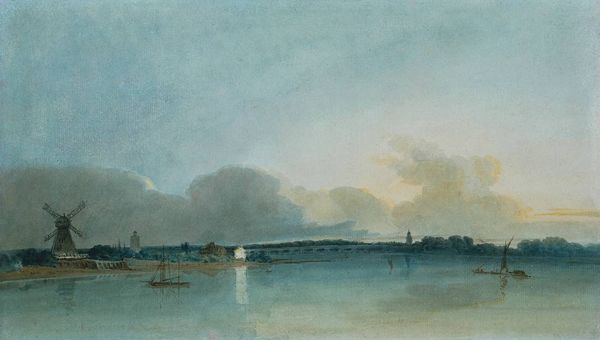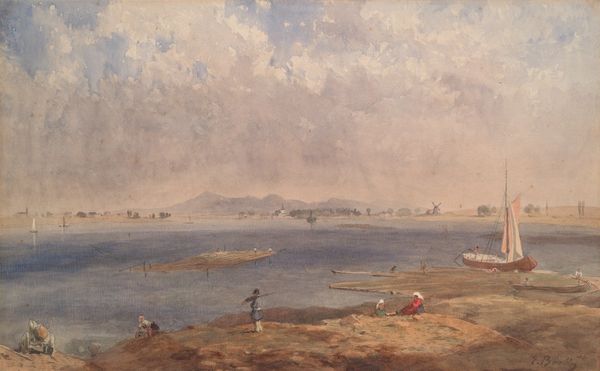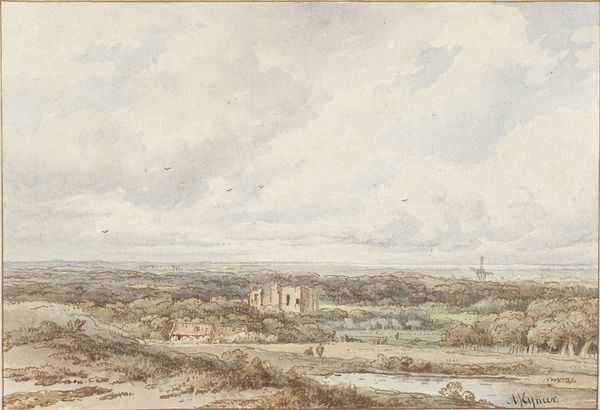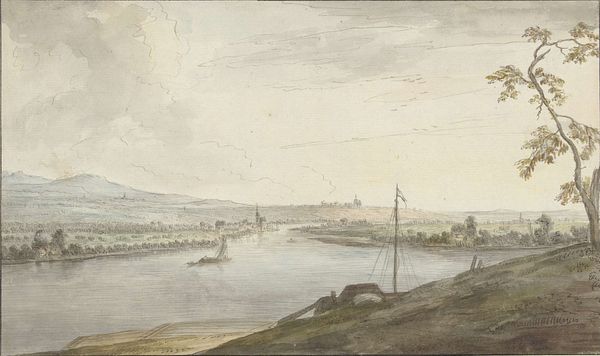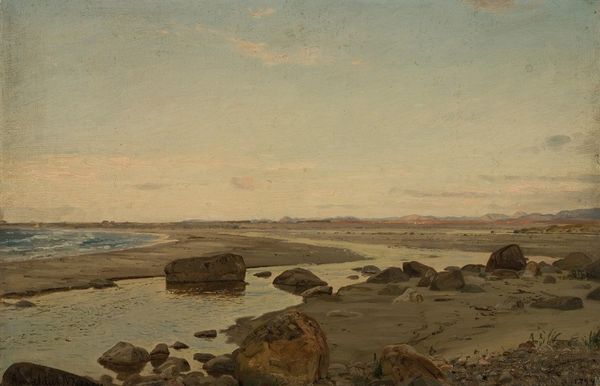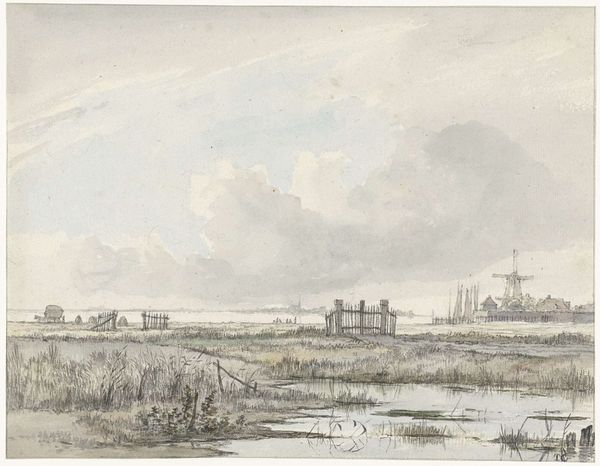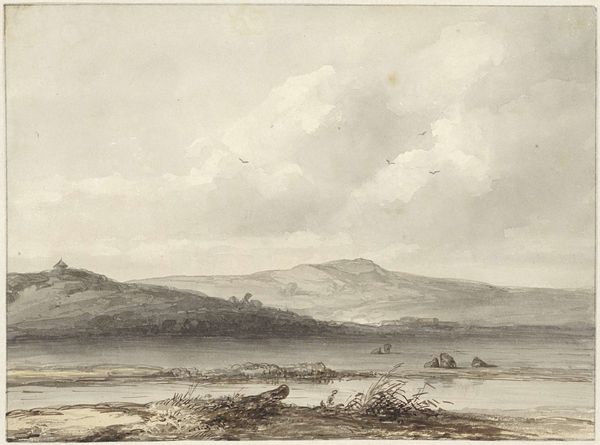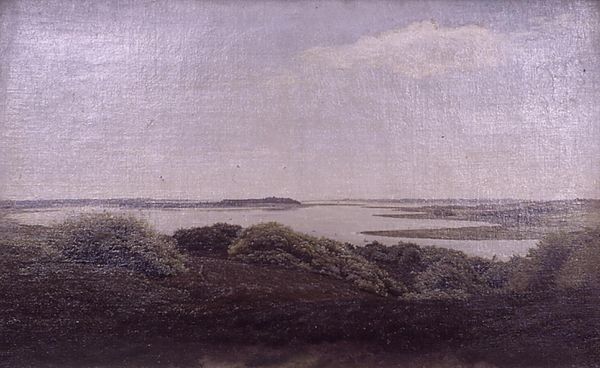
plein-air, watercolor
#
plein-air
#
landscape
#
nature
#
watercolor
#
romanticism
#
water
#
watercolor
Dimensions: height 390 mm, width 730 mm
Copyright: Rijks Museum: Open Domain
John Varley, a leading figure in the Old Watercolour Society, created "The Curfew" using watercolor to capture a serene, sweeping vista. His career unfolded during a time of great social change marked by the expansion of industrialization, urbanization and an emerging middle class with time for leisure. Here, a solitary figure sits atop a hill, overlooking a vast expanse of water and land, inviting contemplation. The title "The Curfew" suggests a moment of imposed stillness, a pause that might reflect the social restrictions of the time, or perhaps a deeper yearning for peace amidst change. Varley uses the landscape to express emotional states and explore the relationship between humans and nature. The subtle gradations of light and color create a dreamlike atmosphere that speaks to the Romantic era’s fascination with the sublime. With its expansive vista, this landscape gently invites us to reflect on our own place within the larger world.
Comments
rijksmuseum over 2 years ago
⋮
The subject of this watercolour is derived from the poem The Curfew. In the poem, a lonely man hears the curfew ringing across the water. Varley worked primarily in watercolour. He strove to make his watercolours as large, and as aspiring in content, as paintings in oil. The particular beauty of watercolours, according to him, lay in the panoramic rendering of the ‘clear skies, distances and water’.
Join the conversation
Join millions of artists and users on Artera today and experience the ultimate creative platform.
